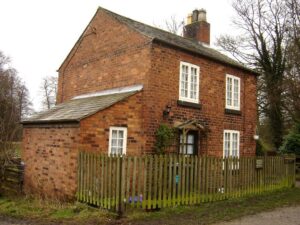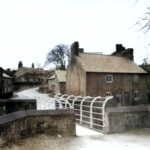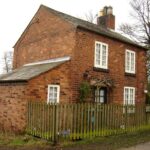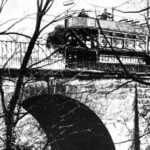Felin Puleston
Felin Puleston village was founded circa 1580 with the construction of a mill by Piers Puleston as competition for King’s Mill. It is shown as still operational on the 25in Ordnance Survey mapping of 1912 but subsequently closed and was demolished. Latterly it was supplied with water from a weir on the river Clywedog some 450m upstream which fed a large pond, set between Ruabon Road and the Shrewsbury & Chester Railway, now the site of Felin Puleston industrial estate (also formerly a Council tip!). Historical records documenting births and deaths in the village trace back to the 16th century. In 1891, the population stood at 172, but by 1982, it dwindled to a single inhabitant.
The entrance to the car park follows the path of the Old Ruabon Road, as evidenced by a map from 1789, which identified it as the sole route in that direction. Ruabon Road once traversed the field adjacent to the current road, entering the village via a ford near the present footbridge, and continuing onto the old turnpike road to Ruabon. When the current Ruabon Road and bridge were constructed, the site of the old road was given in exchange.
During the 19th century, Felin Puleston thrived as a bustling, self-sufficient community featuring its own general store. Positioned along a major coach route, its inn, The Bear, served as a prominent gathering point. Historical accounts suggest that the community evolved around the mill, with the last remaining structure later converted into a chemical factory, and finally an engineering shop, subsequently demolished due to a major fire on the premises.
The village housed shoemakers, grocers, pipemakers, coachmakers, and maltsters. Until the 1930s, over fifty stone cottages, all owned by the Yorkes of Erddig Hall, comprised the village. However, the internal squalid conditions of the buildings emerged during a public inquiry, led to the condemnation of these cottages and the relocation of their residents. Eventually, all the cottages, except the one currently owned by the National Trust, were demolished, and Felin Puleston lives on in name only.







